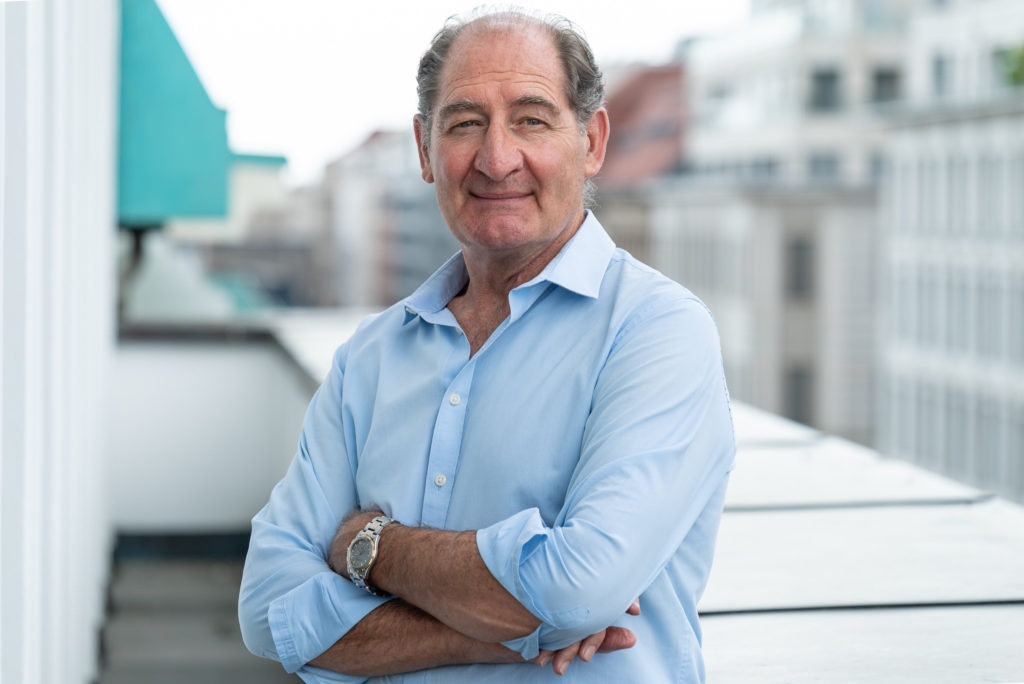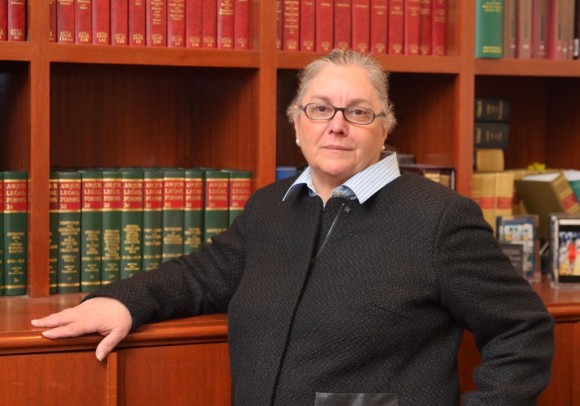Spreading Jsutice's Legal Advisory
Brian Currin
Christina M. Storm


Brian Currin is a renowned South African Human Rights lawyer recognized internationally for his multidimensional global contribution as a human rights lawyer, activist and peace maker over a period of four decades.
Human Rights Attorney
Brian qualified as a lawyer in 1977 in the wake of the 1976 Soweto student riots which catalysed a new era of political protest and activism in South Africa, met with excessive security measures and gross human rights violations perpetrated by the state, marking the beginning of the end of the apartheid era through a peace process and a negotiated settlement 18 years later.
As a human rights attorney from 1977 to 1987, Brian represented thousands of anti-apartheid political activists unlawfully detained, arrested, charged and tortured. Post- apartheid, 1997 and 1998, he represented many families at the Truth and Reconciliation Commission whose loved ones had been assassinated by the apartheid security forces.
Director, Rule of Law; General Counsel Christina Storm joined Spreading Justice Legal advisory team to provide legal reviews on the human rights violators documented in SJ database through her innovative approached.
Christina Storm is a General Counsel and Director of Rule of Law at DT Institute, following a 20-year tenure as founder and Executive Director of the international NGO, Lawyers Without Borders and twenty years as a practicing trial lawyer. Christina has been nationally recognized for producing outside-the-box and innovative approaches to justice sector programming that includes harnessing and leveraging resources pro bono services from lawyers around the world. Her thematic areas of focus have included counterterrorism, human trafficking, gender violence, corruption, and wildlife crime.
Human Rights Activist
In 1987 Brian was approached by prominent senior human rights lawyers in South Africa to set up the National Directorate of Lawyers for Human Rights and to lead the organisation, which he did for 8 years until South Africa’s transition to democracy. During that period, as a human rights activist, he initiated, participated in and oversaw a number of significant projects which today are recognized as part of his legacy:
- An incremental cessation on state executions leading to a moratorium in 1992 until South Africa’s newly established Constitutional Court declared the death penalty unconstitutional in 1998;
- The gathering and publication of irrefutable evidence of the existence of third force death squads within the state security forces who were responsible for politicly motivated assassinations;
- Engagements with the legal department of the banned African National Congress in exile in 1988 on an envisaged Bill of Rights for South Africa in preparation for constitutional negotiations on their return one day after the defeat of apartheid, which happened unexpectedly 2 years later;
- Representation for political exiles and political prisoners at a transitional justice Indemnity Tribunal enabling their return to South Africa or release from prison, in order to participate as leaders in multi-party peace process negotiations;
- Chairing the Currin Commission established by the newly elected democratic government mandated to review the cases of all remaining political prisoners and where appropriate recommend their release;
- Representation to the Multi-party Negotiating Process convened in 1992 to draft a new interim Constitution and Bill of Rights for South Africa;
- Participation in processes and negotiations giving rise to the establishment of the South African Truth and Reconciliation Commission.
International Peace Process Facilitator
Brian’s role as a human rights lawyer and activist in South Africa’s transition from dictatorship to democracy was recognized internationally, and, as result his experience and expertise were sought after in numerous other countries during their peace processes:
- From 1991 to 1999 Brian consulted to the Palestinian Centre for Human Rights based in Gaza on peace negotiations and the role of lawyers in transitional justice and peace processes;
- In Northern Ireland, Brian was appointed by the British Government in 1998 to chair a Transitional Justice Body established by the Good Friday Agreement to adjudicate upon the early release of politicly motivated prisoners. Brian’s engagement in this role ended in 2012;
- Also, in Northern Ireland, Brian facilitated trust and relationship building engagements between security forces, loyalist paramilitaries and republican volunteers who had for 30 years been involved in internecine violent conflict;
- In the Basque Country, 2008 to 2014, Brian convened and lead the International Contact Group mandated by civil society and political parties to enable a ceasefire by the separatist armed group Euskadi Ta Askatasuna (ETA), leading to the end of their armed struggle, followed by decommissioning of weapons and the eventual dissolution of the armed group;
- In 2011, appointed by the Geneva based Centre for Humanitarian Dialogue, Brian assisted in facilitating engagement between political party leaders in Liberia following a contested election result;
- From 2011 to 2014, Brian represented President Ravalomanana in a SADC led mediation, having been deposed as President of Madagascar in a violent coup d’état;
- At the request of Las Fuerzas Armadas Revolucionarias de Colombia (the FARC), the oldest armed insurgent group in Latin America, Brian advised the rebel leaders during the Colombia peace process (2013 and 2014) on disarmament and decommissioning of weapons.
- As a consultant to the Brussels based European Institute of Peace, 2018 and 2019, Brian assisted in bringing together and facilitating engagements between disparate Anglophone armed groups waging a violent armed struggle against the Republic of Cameroon in what is know as the Ambazonia war.
Commenting on his work as a peace process facilitator and human rights activist, Brian makes the point that human rights violations are most prevalent in countries engaged in civil insurrections and civil wars. Bring peace, he says, and human rights violations decline massively.
Christina Storms Approach to Writing Legal reviews for Spreading Justice:
The approach of these reviews features three components;
1) Background of the individual subject of the review
2) Factual Narrative that underlies the legal analysis
3) A legal Analysis
The Background is drawn from information collected by HRA and will often include additional information obtained through research and corroboration efforts by the author from open source materials.
The Factual Narrative lays out the facts which support the violations analysis that follows. This too draws from largely open source materials such as news articles, interviews and in some instances, private interviews with witnesses or the victims themselves.
Finally, the Legal Analysis oftentimes tries to focus on a unique aspect of the subject of the review, such as the culpabilities of elected officials, members of judiciary, military commanders, or the like. In this respect, to avoid repetition among the reviews, each review likely places more emphasis on the responsibilities that grow out of the particular role of the individual in society or government. Further, the reviews do not focus entirely on potential criminal culpability but will also explore violations that might be redressed through other types of accountability mechanisms, some quasi-governmental under international instruments, and others through different sanctions regimes that can impact the subject’s extra-territorial freedom of movement or residential permissions, as examples.
While the reviews attempt to reach Conclusions related to accountability for human rights violations, they are always subject to a further process of rigorous evidentiary evaluation that would include weighing the probative value of different types of evidence and robust efforts at corroboration. The conclusions are made with the reservation that they are always subject to that exhaustive process of formal legal examination. They are intended to offer a starting point in the quest to pursue and seek accountability for human rights wrongs and violations.
